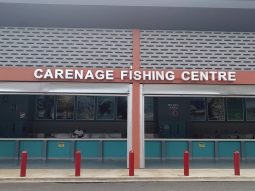PREVIOUSNEXT
Modernizing the Fisheries Management Legislative Framework in Trinidad and Tobago
October 6, 2020

The Fisheries Management Bill was introduced in Parliament in June 2020 after almost three decades of development. This Bill is intended to revolutionize and modernize fisheries management in Trinidad and Tobago by creating a robust legal basis for regulation of the fishing industry and management of the common property fisheries resources that belong to the people of the country.
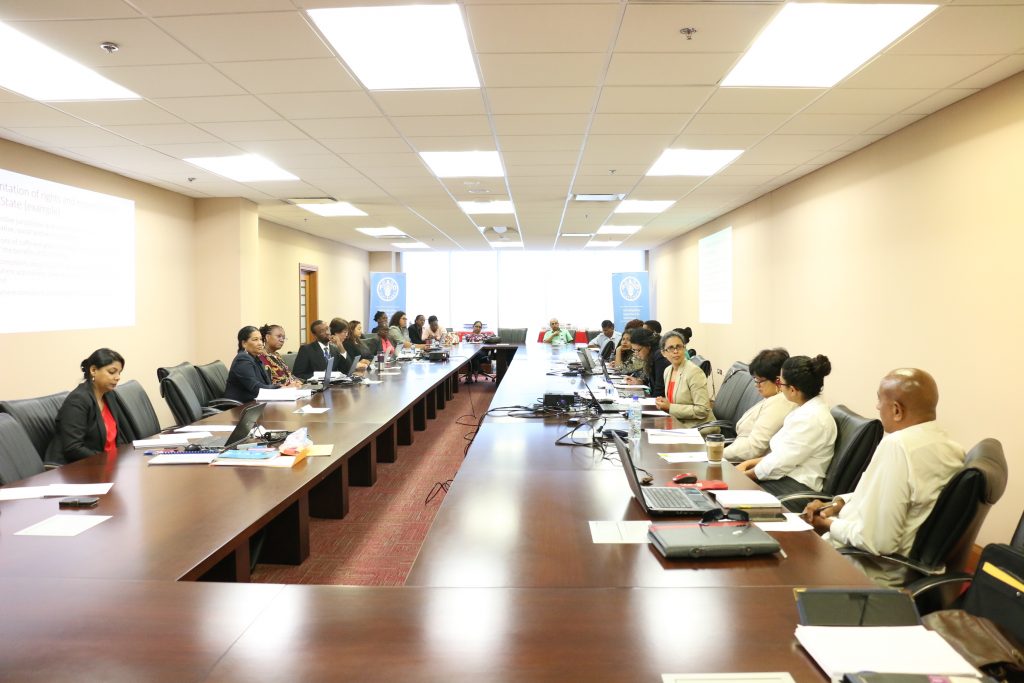
Consistent with international best practices in fisheries management and embodied in the Bill’s principles for decision-making is a participatory approach. The Bill makes provision for stakeholder involvement in the governance and decision-making process and for collaboration of government agencies with responsibilities impacting fisheries. These include trade, health, customs, finance, national security, maritime services, foreign affairs and the environment, with the Fisheries Division. Long-term sustainability of fisheries resources and the ecosystem and precautionary approaches to fisheries management are also embodied in the Bill’s principles for decision-making.
In addition to these overarching principles the Bill facilitates:
(a) protection of current fish trade markets and penetration of potential markets
(b) fulfillment of the country‘s international coastal, flag, port and market State obligations
(c) security of access by nationals to fisheries resources in areas beyond national jurisdiction
(d) strengthened control of fisheries crimes including illegal, unreported and unregulated fishing
(e) strengthened control of crimes associated with fishing.
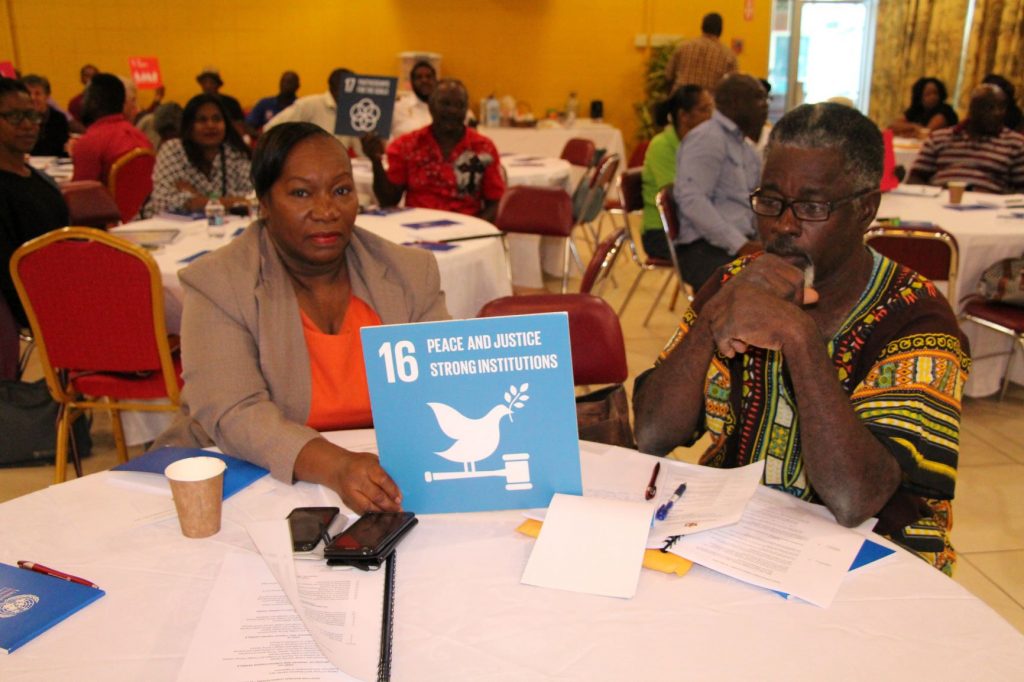
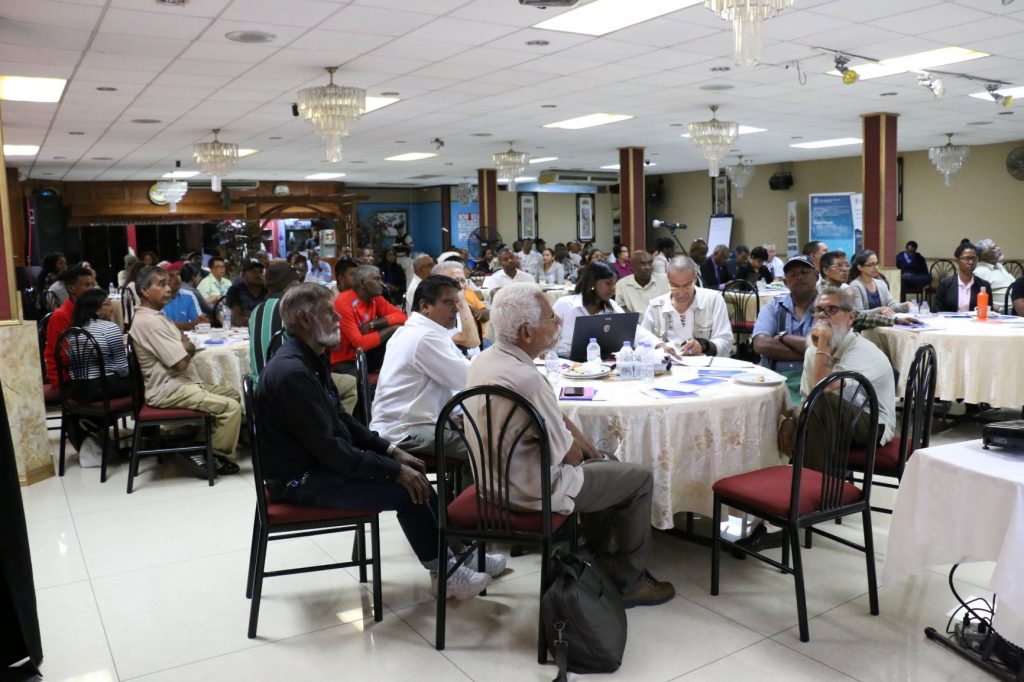
The Bill expands the scope of the regulatory framework to include all fishing (artisanal, non-artisanal, commercial, recreational, national and foreign) and fishing-related activities (e.g. landing, processing, transshipment, in transit movement, trade) within the waters under national jurisdiction (Archipelagic Waters, Territorial Sea and Exclusive Economic Zone) and by national fishing vessels in areas beyond national jurisdiction; mindful that the current Fisheries Act of 1916 regulates only fishing by the national fleet up to the Territorial Sea, while the Archipelagic Waters and Exclusive Economic Zone Act regulates foreign fishing in the full extent of Trinidad and Tobago’s jurisdiction.
Some key measures of the Bill provide for:
- An administrative framework for harmonization of the fisheries management programs in Trinidad and in Tobago and establishment of fisheries inspectorates in both islands
- Development and implementation of fisheries management plans
- Establishment of a Fisheries Management Fund to be managed by a Fisheries Financial Board
- Mandatory registration of fishers and fish workers
- Mandatory record-keeping by the Fisheries Division (e.g. records of fishing vessels and fish vendors)
- Institution of a system of regulated access to the fisheries resources to be implemented through a range of authorizations, licences and permits with requisite fees; this is a distinct change from the existing practice of open access to the fisheries resources
- Enhanced fisheries monitoring, control, surveillance and enforcement systems including extensive duties and powers of authorized officers and observers, logbook and vessel monitoring systems, increase in the type and form of admissible evidence, a penalty system to deter non-compliance with penalties in addition to fines and imprisonment, e.g. forfeiture, banning order
- Expanded regulation-making powers of the Minister taking into consideration the changing national, regional and international circumstances and obligations.
Given the magnitude of the administrative, social and economic changes required for effective implementation of the Bill once it becomes law and the associated industry trade-offs (See Box 1.), the restructuring of the fisheries administrations in both islands and implementation of a change management-stakeholder awareness programme are critical elements in moving forward.
The Bill was forwarded to a Joint Select Committee for review and reporting back to Parliament by 31 August 2020. Subsequently, Parliament was dissolved on 3 July in advance of national general elections on 10 August 2020.
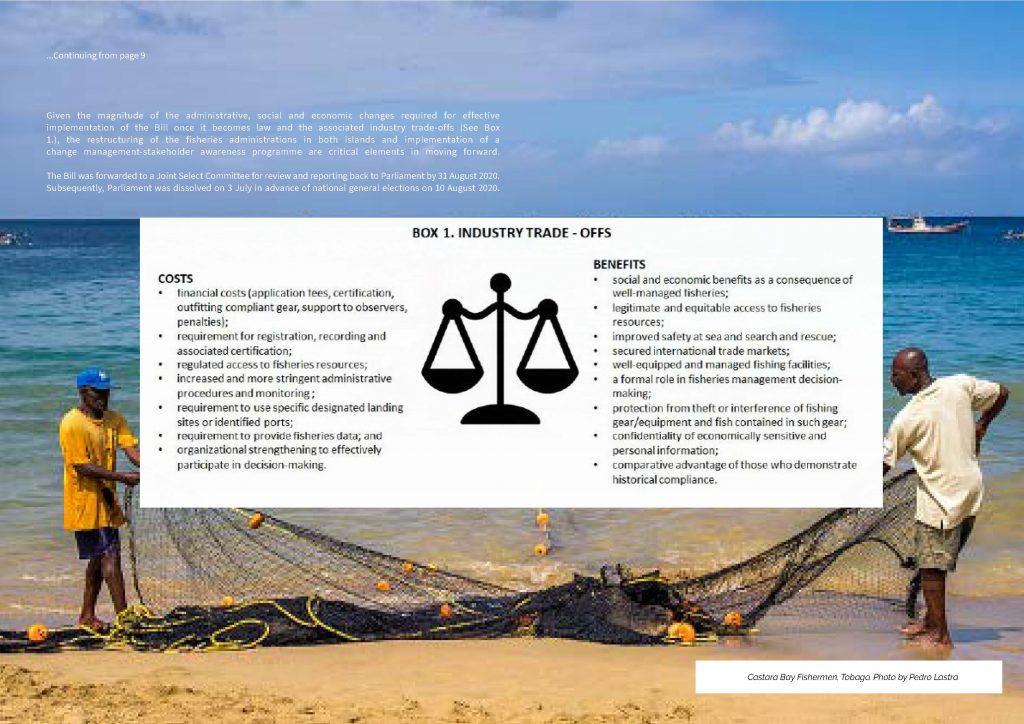
Author: BY: Elizabeth Mohammed - Senior Fisheries Officer, Louanna Martin-Fisheries Officer, Sarika Maharaj-Interim Coordinator - Fisheries Inspectorate and Nerissa Lucky - Director of Fisheries (Ag.) (Fisheries Division, Ministry of Agriculture, Land and Fisheries)
"Providing Training in the Maritime & Fishing Industry"

An Agency of the Ministry of Agriculture, Land and Fisheries.



